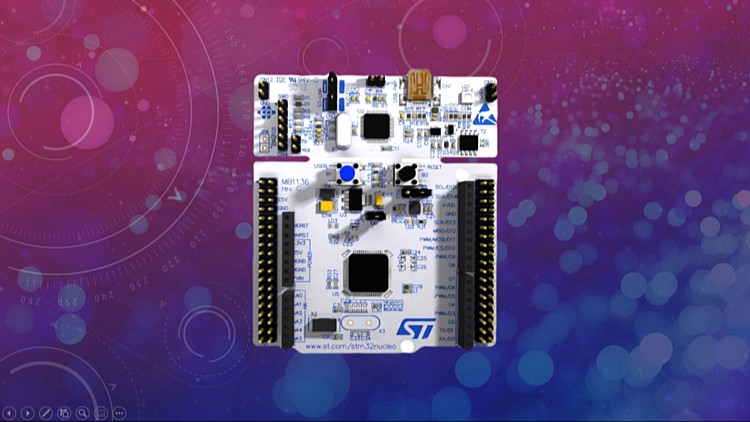Mastering Microcontroller: Timers, PWM, CAN, Low Power(MCU2)
Learn STM32 Timers, CAN, RTC, PWM, Low Power embedded systems and program them using STM32 Device HAL APIs step by step.
4.62 (3770 reviews)

35,052
students
29 hours
content
Apr 2025
last update
$79.99
regular price
What you will learn
You will learn from scratch about STM32 Timers : Basic and General Purpose Timers
Understand General purpose timer's Input capture apnd Output compare unit handling and Exercises
Handling of Timer interrupts : Time base interrupts, capture interrupts, compare interrupts
Understand about CAN filtering
You will learn from scratch CAN Protocol, CAN Signalling, CAN Transceivers , Bus Access procedures
Learn about CAN interrupts
CAN Peripheral programming using STM32 device HAL drivers
You will master Low power modes of the MCU : SLEEP,STOP and STANDBY
You will understand different power domains of the MCU : VDD domain, 1.2V domain, backup domain
Understand Microcontroller Wakeup Procedures using : RTC, wakeup pins,EXTI,etc.
You will master RTC Features : CALENDAR, ALARM , TIME STAMP,WAKEUP UNIT
RTC interrupts and wake up procedures
Mastering Microcontroller Clocks Handling : HSE,HSI,LSE,LSI,PLL
Understand phase locked loop (PLL) programming
Learn PWM mode and Master through step by step code exercises
You should be able to quickly develop applications which involves STM32 Device HAL layer
Screenshots




Related Topics
1628766
udemy ID
4/3/2018
course created date
8/25/2019
course indexed date
Bot
course submited by